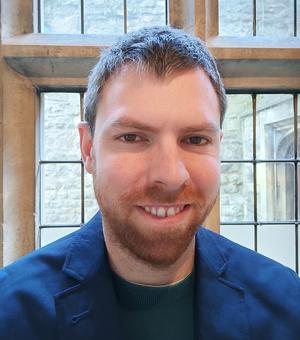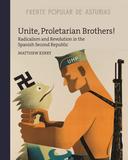Dr Matthew Kerry
I’m a social and cultural historian of modern Spain from the late nineteenth century to the present with a focus principally on the meaning and practice of politics in everyday life. My doctoral work centred on the Spanish Second Republic, specifically the revolutionary insurrection in Asturias in October 1934, and I’ve since broadened my scope to the emergence of mass politics in the preceding decades, as well as popular culture and protest post-1975.
I joined Oxford in 2023 after three years at the University of Stirling. I have held research fellowships at York University, University of Granada and the Institute for Social Movements (Bochum) funded by organisations including the Royal Society of Edinburgh and the DAAD. I received my PhD from the University of Sheffield.
Research Interests
My first book was a case study of an exceptional case: it explores the tensions around democracy, revolution and working class politics in interwar Europe by examining the causes, unfolding and ramifications of a two-week revolutionary insurrection in the northern Spanish region of Asturias in October 1934. In Unite, Proletarian Brothers! Radicalism and Revolution in the Spanish Second Republic, 1931-6 (University of London Press, open access, 2020) I revised the classic paradigm of ‘radicalisation’ and looked at how struggles at community-level over secularisation, housing, the nature of union strategy and, importantly, policing together help to explain the rebellion. I also examined the understudied experience and impact of the revolution and its repression on the local community after October 1934, from boycotts and local level purges to how the revolution was experienced in a bodily, gendered way by clerics who sought to escape the anticlerical violence that accompanied the revolt. These topics were the subject of articles I've published in journals including the English Historical Review, Cultural & Social History, and Historia Social. A Spanish version of my book was published in 2024 by Comares under the title Un pueblo revolucionado: el octubre de 1934 y la Segunda República en Asturias.
My research has since moved in different directions. My current main focus is a project on the emergence of mass politics in Spain between 1890 and 1936 through the prism of sound. I’m working on different forms of political sound and noise-making and their role in expressing or regulating political behaviour. I’m interested in a variety of themes, from the role of new technologies of amplification to shouting and singing at rallies and in demonstrations. My initial foray into this area through the phenomenon of the sound of blasphemy appeared in Demystifying the Sacred: Blasphemy and Violence from the French Revolution to Today (De Gruyter, 2022).
A further project has emerged out of converging interests in popular justice, shaming, popular culture, the relationship between the individual and the collective, and how the history of protest has been written, often from a sociological perspective. I’m working on a history of Spanish charivari or rough music and the evolution of the Spanish carnivalesque and its relationship to politics and collective action. My first piece reflecting on pot-banging and collective action appeared in Past & Present in spring 2024.
Featured Publications
Teaching
I would be happy to hear from students interested in my main areas of research, including the history of modern Spain, social and cultural approaches to politics, collective action, and violence.
I currently teach:
|
Prelims |
FHS |
|
European and World History 4 1815-1914 |
Disciplines of History |
|
Historiography: Tacitus to Weber |
European and World History 13 Europe Divided, 1914-1989 |
|
|
European and World History 14 The Global Twentieth Century 1930-2003 |
| Special Subject: The Spanish Civil War in Context |
Graduate Papers:
Making Spain Modern: State and Society, 1898-1992





